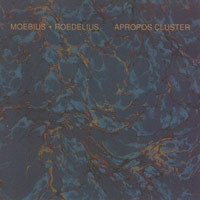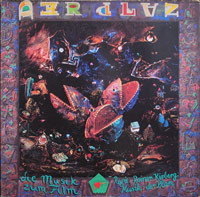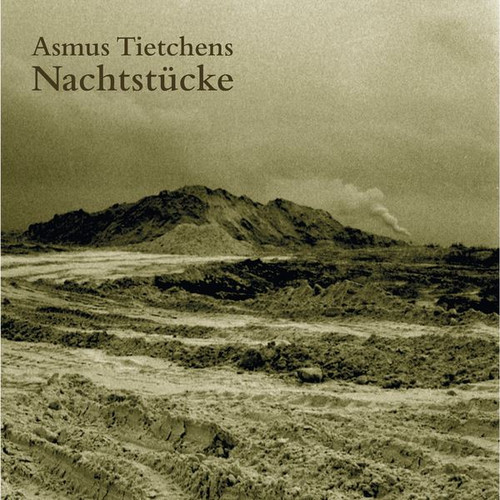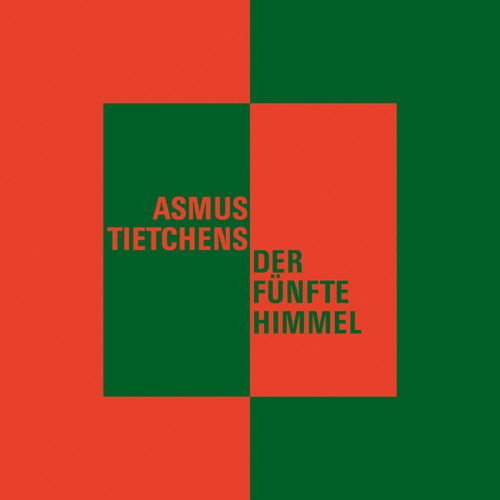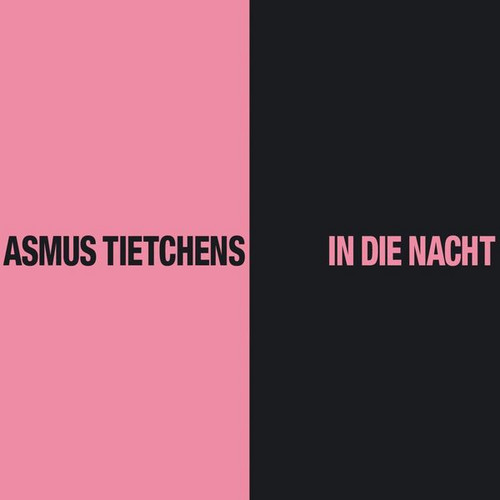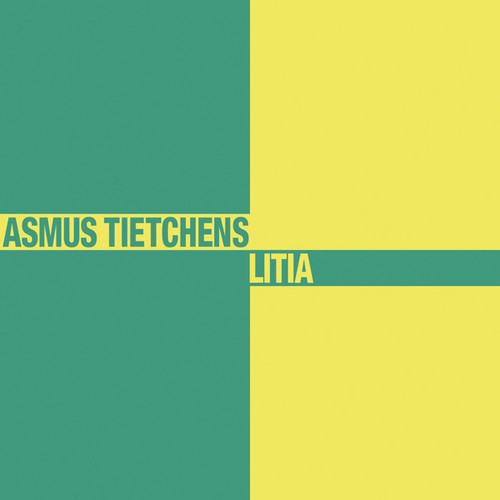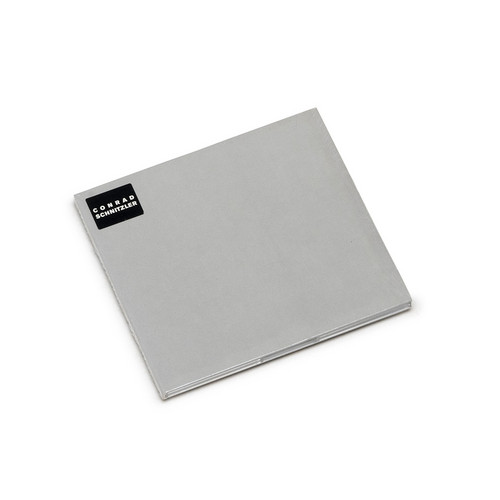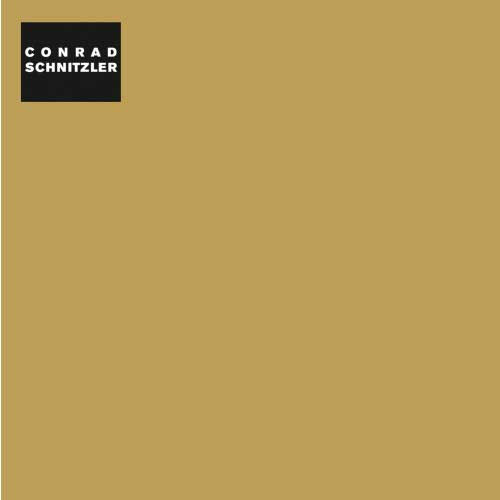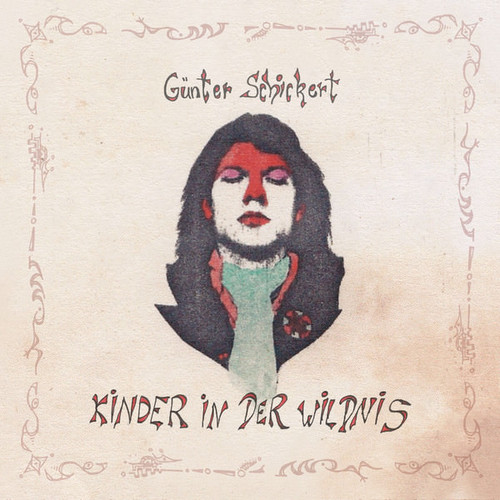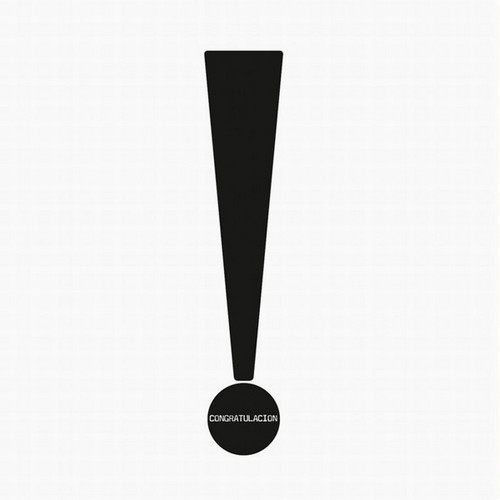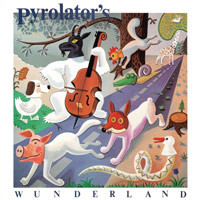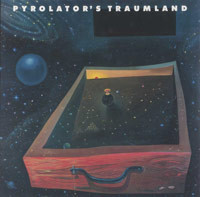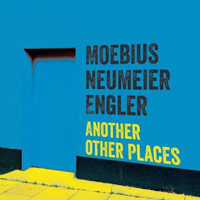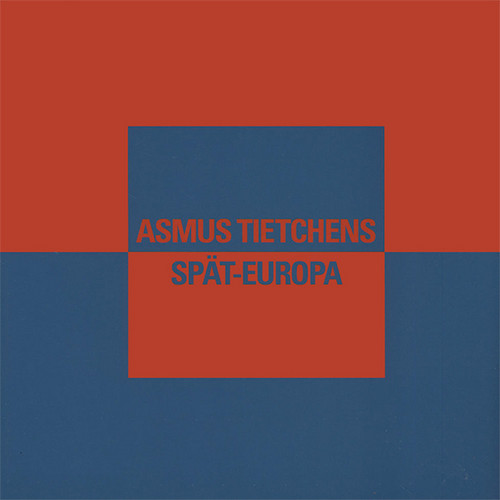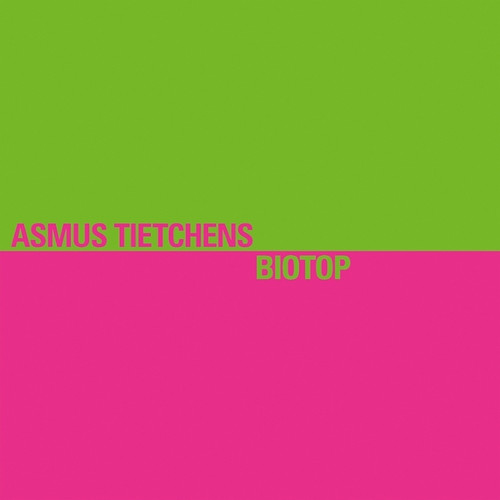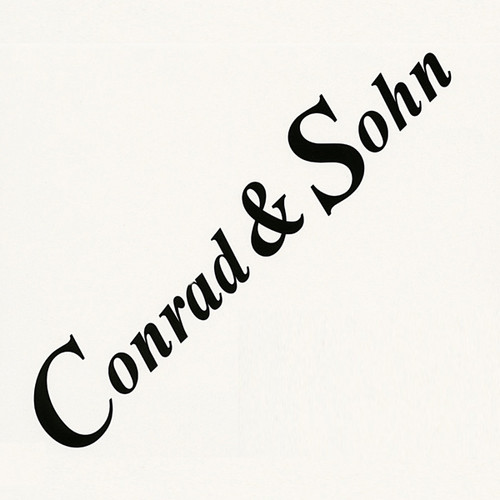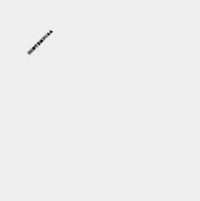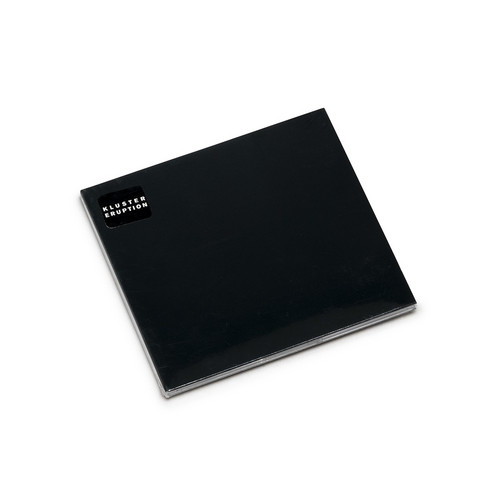★Bureau B
Apropos Cluster
“Apropos Cluster” was released in Coralville, Iowa, in deepest provincial America. Youthful enthusiast Russ Curry (sic) set up the Curious Music label on his own initiative to release this very album. Emboldened by the spirit of the independent movement, he paid for manufacturing himself and took care of CD distribution, as well as doing his best to ensure that a few copies made their way to Europe. In common with so many independent label operations, Russ Curry lacked the financial clout to mar…
Japlan
Der Plan were invited to Tokyo in 1984 to play six concerts for Seibu, a Japanese department store chain. Seibu were staging a “German Week”. But how did they come to choose Der Plan, of all bands? Why not an Oktoberfest combo or the Scorpions? Moritz Reichelt explains: “German New Wave was really popular in Japan. They knew more about it than people here at home. Catalogues and magazines detailed every obscure record and depicted the covers. This particular department store chain was linked …
Die letzte Rache
Der Plan (Moritz R, Frank Fenstermacher, Pyrolator) were instrumental in ushering in the German New Wave (NDW) and are considered free spirits of synthesizer pop: electronic music created with minimal means, sometimes experimental, playful or even bordering on dilettantism, but always with a sense of humour.
Retrospectively, it makes perfect sense that Der Plan created a soundtrack. For one thing, visuals were almost as important to Der Plan as their music. And if every self-respecting pop b…
Nachtstucke
LP version. Pressed on 180 gram vinyl. Nachtstücke owed its publication to former Tangerine Dream member Peter Baumann, who was asked by the French label Barclay/EGG to produce three albums focusing specifically on German electronic music. He was working with Hans-Joachim Roedelius at the time, who had been given a few Tietchens tracks on cassette. When Baumann heard Roedelius play them in the studio during a break in proceedings, they sparked his interest and he met up with Tietchens some time …
Der Funfte Himmel
LP version. Pressed on 180 gram vinyl. Between 1981 and 1983 Asmus Tietchens released four albums on the Sky Records label, fusing rhythmic set pieces and off-kilter sounds into gaudy escapades of saccharine artificiality. The "pseudo-pop" epithet reflected their frequently ironic air. All four records have been reissued by Bureau B in their original form. What remained may be found on this collection. Der fünfte Himmel ("The Fifth Sky") retrieves those pieces which were denied a place on the or…
In die Nacht
Bureau B reissues Asmus Tietchens' third solo album on Sky Records, originally released in 1982. It stands to reason that any musical journey undertaken by a skeptic like Asmus Tietchens is destined to head into the night (In die Nacht) rather than into the day. In die Nacht, the third album in the so-called time signal ("Zeitzeichen") phase, continuing in the same vein as Biotop (BB 141CD/LP) and Spät-Europa (BB 142CD/LP), while laying down its own stylistic markers, no doubt attributable to th…
Litia
LP version, on 180 gram vinyl. Released in 1983, the Litia album concluded Asmus Tietchens' études phase and bid a farewell to rhythmic synths -- well, almost. All the signs of "pseudo pop" as heard on Biotop, Spät-Europa, and In die Nacht resurfaced: squeaky sounds and protracted, rattling rhythms grouped into abstract forms through their accentuated artificiality. Sporadic noisiness is as much a part of it as is a winking gesture, which should not detract from the basic sobriety of the work, h…
Silber
A collection from Conrad Schnitzler's archive, recorded between 1974 and 1975, originally released on LP only in 2009. Contains the complete original material (three more tracks than the 2009 release) on CD for the first time (with original running order). Just when you think you have grasped Conrad Schnitzler's master plan, every time you kid yourself into predicting what you are about to hear, the next record comes along to prove you wrong. Motorik is writ large throughout. Even the less rhyth…
Gold
Bureau B presents a song collection from Conrad Schnitzler's archive, recorded between 1976 and 1978, originally released by the small German label Marginal Talent in 2003. In the comprehensive canon of Schnitzler releases, the music on the Gold album stands out a mile in every respect. Judged on the sound alone, there is little to suggest that the material was recorded as long ago as the 1976 to 1978 period. There is more at play here than two tape recorders, analog synthesizers and sequencers.…
Kinder in der wildnis
The fact that this album appeared at all in 1983 owes less to Günter Schickert and more to Steven and Alan Freeman, who sought him out for their Krautrock encyclopedia The Crack in the Cosmic Egg. On learning that Schickert had heaps of recordings in his archive, the Freeman brothers proposed compiling an album. Schickert agreed and handed over material which the English YHR label had released in cassette form. Kinder in der Wildnis is a more heterogeneous album than either of its predecessors, …
Congratulacion
LP version on 180 gram vinyl." Conrad Schnitzler is as unpredictable as he is true to himself. If this sounds paradoxical, he reconfirmed the assertion in 1987 with an album which posed many questions and offered few answers -- his music more extraordinary than ever. The indefatigable Schnitzler still leaves anyone listening to Congratulacion today rather baffled. Those well-acquainted with his music might search in vain for familiar landmarks. Instead, new and unexpected features can be heard, …
Pyrolator's Wunderland
LP version, on 180 gram vinyl. Bureau B reissues Pyrolator's Wunderland, originally released on Ata Tak in 1984. Quote 1: "I have always strived for the opposite of whatever is hip at the time." (Pyrolator in June 2013) Quote 2: "Wunderland is so beautiful -- the first time I heard this record, I cried." (Andreas Dorau). New York City, 1983. Andreas Dorau has a gig at Danceteria and Pyrolator accompanies him as sound engineer. Back then, it really looked as if Ata Tak could make a go of it in th…
Pyrolator's Traumland
LP version, on 180 gram vinyl. Bureau B reissues Pyrolator's Wunderland, originally released on Ata Tak in 1984. Quote 1: "I have always strived for the opposite of whatever is hip at the time." (Pyrolator in June 2013) Quote 2: "Wunderland is so beautiful -- the first time I heard this record, I cried." (Andreas Dorau). New York City, 1983. Andreas Dorau has a gig at Danceteria and Pyrolator accompanies him as sound engineer. Back then, it really looked as if Ata Tak could make a go of it in th…
Another other places
"17 years after Other Places, a sophomore album from these innovative musicians. Dieter Moebius (Kluster, Cluster, Harmonia), Mani Neumeier (Guru Guru) and Jürgen Engler (Male, Die Krupps) got back together to carry on exactly where they left off in the 1990s. The long break has done no harm to their latest music, on the contrary -- as is clearly audible -- it has taken them to another level. The way they react to each other as they improvise, the powerful, subtle rhythms and the use of digital…
Spat-Europa
LP version. Comes on 180 gram vinyl. While Asmus Tietchens planned to head off "into the future" ("In die Zukunft") with Biotop (1981), Spät-Europa witnesses his arrival. Released on Sky Records in 1982, the second album in the "Zeitzeichen" phase not only continued in the style of its predecessor, it managed to refine it a little more precisely. Spät-Europa also conveys a banefully distorted pseudo-pop soundscape of disjointed rhythms and oblique melodies, defined by nervous pulses, cool alacri…
Biotop
scenes from the lab of German electronic music composer Asmus Tietchens are just a few skewed demonstrations of his distant mastery of highbrow composition guised in synth-pop's veneer
Conrad & Sohn
"Conrad Schnitzler is undoubtedly one of the founding fathers of German electronica. And his son, Gregor Schnitzler, matched the father's extraordinary level of creative output. They appear to have settled any musical differences amicably. After all, how else could they have 'shared' an LP released by Conrad Schnitzler himself? One half of Conrad & Sohn features music by Conrad Schnitzler, the other, his son Gregor. Two mini-albums on one disc, so to speak. An ideal opportunity to compare them. …
Contempora
Conrad Schnitzler (1937-2011), composer and concept artist, is one of the most important representatives of Germany's electronic music avant-garde. A student of Joseph Beuys, he founded Berlin's legendary Zodiak Free Arts Lab, a subculture club, in 1967/68, was a member of Tangerine Dream (together with Klaus Schulze and Edgar Froese) and Kluster (with Dieter Moebius and Hans-Joachim Roedelius) and also released countless solo albums. "Contempora" is a sort of collection of sketches, refl…
Lauschen
"Kluster (1969) metamorphosed into Cluster (1971) and Cluster became Qluster (2011). In a period spanning over 40 years, Hans-Joachim Roedelius was a driving force behind this unique transformation. Now, as Qluster, he has recorded together with Onnen Bock in the latest incarnation. Three albums already released document the current status of their musical journey to pastures new. Lauschen is not a studio album, but a live recording of a performance for which Roedelius and Bock invited world mus…
Schwarz (Eruption)
Kluster was a short-lived project of three musicians/artists/performers: Dieter Moebius, Hans-Joachim Roedelius and Konrad Schnitzler. They recorded two albums in 1970, unprecedented in their experimental radicalism. Chaotic, apocalyptic (noise) improvisations, a sound later termed industrial music. Kluster disbanded as Moebius and Roedelius found the financial risk of bringing out a third album too daunting. Schnitzler decided to go ahead on his own, releasing the material they had recorded tog…
